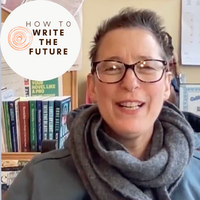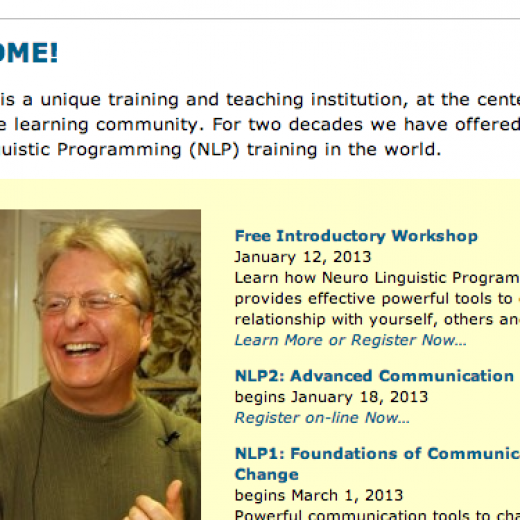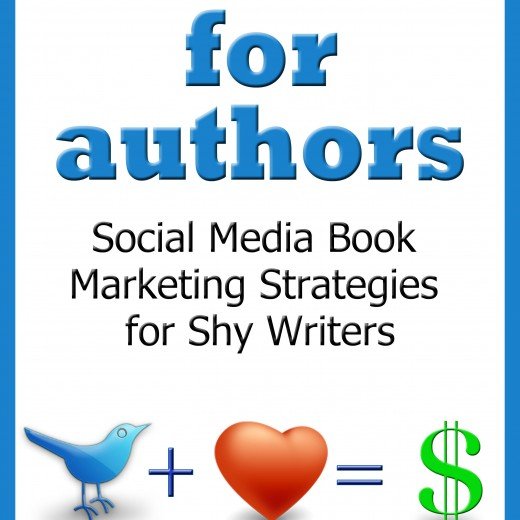Fiction Writing Tips: Number One Tip, Worldview and Time Travel
In this How To Write the Future podcast episode, titled “Fiction Writing Tips: Number One Tip, Worldview and Time Travel,” Beth Barany shares her number one tool for choosing world building details in your story and discusses key elements involved in writing about time travel.
ABOUT BETH BARANY
 Beth Barany teaches science fiction and fantasy novelists how to write, edit, and publish their books as a coach, teacher, consultant, and developmental editor. She’s an award-winning fantasy and science fiction novelist and runs the podcast, “How To Write The Future.”
Beth Barany teaches science fiction and fantasy novelists how to write, edit, and publish their books as a coach, teacher, consultant, and developmental editor. She’s an award-winning fantasy and science fiction novelist and runs the podcast, “How To Write The Future.”
Learn more about Beth Barany at these sites:
Author site / Coaching site / School of Fiction / Writer’s Fun Zone blog
RESOURCES
Get support for your fiction writing by a novelist and writing teacher and coach. Schedule an exploratory call here and see if Beth can support you today: https://writersfunzone.com/blog/discovery-call/
SHOW NOTES
“You really want to rely on your point of view character’s knowledge of the world and ground it in the five senses.”
In this episode of How To Write The Future, titled “Fiction Writing Tips: Number One Tip, Worldview, and Time Travel,” Beth Barany, creativity coach and science fiction and fantasy novelist, shares her number one tool for choosing world building details in your story, explains how to use your character’s worldview, and discusses key elements involved in writing about time travel.
ABOUT THE HOW TO WRITE THE FUTURE PODCAST
The How To Write The Future podcast is for science fiction and fantasy writers who want to write positive futures and successfully bring those stories out into the marketplace. Hosted by Beth Barany, science fiction novelist and creativity coach for writers.
Tips for fiction writers!
This podcast is for you if you have questions like:
- How do I create a believable world for my science fiction story?
- How do figure what’s not working if my story feels flat?
- How do I make my story more interesting and alive?
This podcast is for readers too if you’re at all curious about the future of humanity.
TRANSCRIPT for Episode 27 Fiction Writing Tips: Number One Tip, Worldview, and Time Travel
Are you stuck with your story and don’t know how to get unstuck?
Are you a novelist who wishes to be more prolific?
Or maybe you’ve written that first draft and you just don’t know how to make it better.
Then sign up today for a No Obligation Discovery Call with me, Beth Barany, Creativity Coach and award-winning science fiction and fantasy novelist.
I look forward to seeing how I can help you.
So sign up today. The link is in the show notes.
And now let’s get on with the show.
Welcome everyone. Beth Barany here with the podcast, How to Write the Future. In this episode, I’m going to talk about the number one tool for choosing world building details for your story, and worldview, and a few tips about time travel.
I am a science fiction and fantasy writer, and I help science fiction and fantasy writers write market, and publish their books.
I care about writers creating positive, optimistic futures because when we inject our positive visions into the world, we allow our readers to enjoy them, live in them, and help make them real in their own lives. That’s the hope anyway.
So what is the number one tool for choosing world building details for your story?
You really want to rely on your point of view character’s knowledge of the world and ground it in the five senses. And the third piece here is you want to know what they’re thinking, feeling, and doing.
For example, when your character walks into a cafe, do they salivate at the bitter, pungent smell of coffee? Or is it the aromatic sweetness of the black tea they notice? Or maybe it’s the crumbly, creamy pastries they can’t wait to eat.
Does the warm cafe evoke many hours of studying for final exams? Or maybe their memories are full of all the times they came to the cafe to chat with friends and giggle over who was cute. Or maybe the cafe holds memories of loneliness, wishing they had the courage to strike up conversation with that guy or girl over there.
A location is not neutral. Setting is not neutral. World is not neutral. Every place and time usually evokes memories, associations, and longings. Think about what those are for your characters.
Also, pay attention to places your character loves and your places your character wants to avoid.
If you have a character going to a new location where they have no personal associations, they may still have impressions and history built up over time based on their own life experience and what they’ve encountered. Maybe media or rumors, just little tidbits they have picked up along the way. No place is neutral.
Everybody has an attitude toward their world, whether it’s curious or skeptical, or even in the neutral zone. I would say underlying that will be some kind of judgment or discernment placed on that detail of the world.
I have a saying when I, when I teach and, and also for myself as a writer, which is: Don’t list the ingredients, capture the flavor.
What is the most important flavor that you want to convey in your story? And in this moment of your story.
You are the author. You are the God of the story world. So you get to choose the flavor that you want to convey in the scene, in this moment of action in your story.
Now, something I notice a lot is that writers get frozen in indecision and stuck in not knowing: Is this right? Is this right? And they’re not sure. And so, they don’t do anything and they don’t write.
So I want to encourage you to approach writing, like experimentation. You’re writing a first draft. Even in revisions, I do this. I remind myself: I’m going to try it this way. I’m gonna try it that way. And I think about: Take one, take two, take 10, take 20.
Just keep trying new things until you find the one that makes you buzz with excitement. So try different ways, experiment, play, be in a place of curiosity, and try it many ways.
Above all evoke emotion. To shake things up, when you’re working on a scene or trying to decide world-building details, take risks. Be silly. Be serious. Be mysterious. Be sensual. It is really in this playful space that you will find what works for you, that you will find your voice.
Our job as storytellers is to evoke emotions, and writing novels is such a wonderful, wonderful medium for evoking emotion because unlike TV and film, those visual mediums, we can go beyond the sense of sight and show, of course, what our characters see, but also what they smell, what they hear, what they taste, what they feel through the body, which is actually quite a lot of senses, and what they are experiencing on a spirit level, spiritual level, soul level, and what they’re experiencing in that emotional level, which is entirely shaped through culture.
Worldview
Now, I want to talk a little bit about worldview and what I mean by that.
What I notice for a lot of authors is they will put a character on the page and move them through a scene going after a goal, but I can’t really tell who they are because I really don’t know what they believe, and I don’t really understand their attitude towards a situation because it is not showing up on the page.
So, we all have attitude, meaning we all have a perspective, a judgment, an emotional perspective through which we view the world, how we see ourself, how we see the current surroundings, how the world was shaped.
That’s all worldview.
Maybe when you were a child, you drew a picture of your family. And you drew some other elements in the picture, like the sun, maybe, and the earth, and maybe a tree. And as small children, all those things are representative. How you represented the people and yourself and where you put the items of nature, those are representative of the perspective of that child, right then.
Now, if you are to draw a picture, even with stick figures of your family, it might look different, might feel different because your perspective has changed.
So our worldview is really our mental map of the world. And consciously and unconsciously we have placed what’s important to us in certain places and what’s not important to us. Imagine at the edges of the map and what’s important to us maybe in the center of the map within reach.
The way we see the world is shaped by so many factors, and science is just starting to understand how our ancestors’ experiences actually shape who we are today. That’s epigenetics. We have the natural world shaping us. We have our family of origin shaping us, our peer group, the media we consume, and how we think all these things shape the worldview of your, of you, of your characters.
I would say most of it is unconscious. Some of it is conscious. And as an author, since you’re the God of your world that you’re creating, you get to decide your character, your character’s worldview.
So, put some time into this and ask them their opinion about the world, about the state of the world, about where the world is going, and where the world came from and how it got there. And then ask them: how do they feel about their future, about their present? What’s important to them? If they had to prioritize their values, what would they be?
This all shapes your characters’ worldview.
Time Travel
Now, here is a special short note about time travel.
If you’re writing time travel, then you need to figure out how and why it works.
If your story is fantasy based in time travel, the rules can be different and maybe based in magic, which you get to decide.
If you’re writing science fiction, then your audience will expect you figured out ways around the paradoxes that our modern readers will know, like the causal loop, and explain them within the logic of your story world.
Above all, have fun with world building. Whether you start with your characters to discover your story world, or you start with the world and add your characters, world building can be a wonderful process of discovery as we create our compelling and engaging worlds for our readers.
invite+outro
Beth Barany
Write long and prosper.
Beth
Science fiction and fantasy writers, sign up for your No Obligation Discovery Call and get clarity to your writing process and finish your book.
Loved this episode? Leave us a review and rating here: https://www.buzzsprout.com/2012061
or in your podcast home of choice.
CONNECT
Contact Beth: https://writersfunzone.com/blog/podcast/#contact
Email: beth@bethbarany.com
LinkedIn: https://www.linkedin.com/in/bethbarany/
CREDITS
EDITED WITH DESCRIPT: https://www.descript.com?lmref=_w1WCA
MUSIC: Uppbeat.io
DISTRIBUTED BY BUZZSPROUT: https://www.buzzsprout.com/?referrer_id=1994465
- SHOW PRODUCTION BY Beth Barany
- SHOW NOTES by Kerry-Ann McDade
For more “How To Write the Future” episodes, go here.
If you’d like to invite Beth onto your podcast, drop her a note here.




